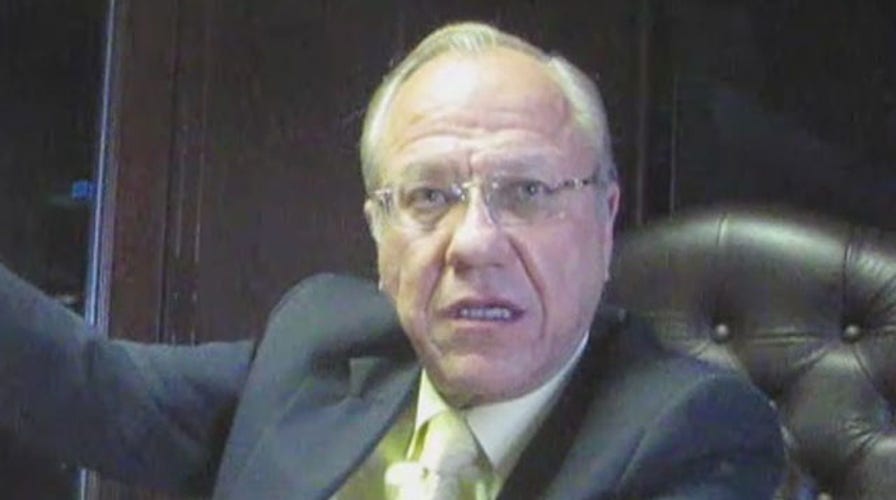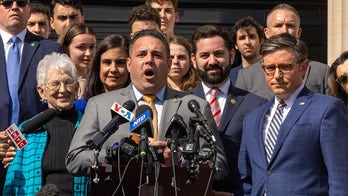Ciudad Juárez, Mexico – Hector Murguía, the outspoken mayor of this border city besieged by a five-year drug war, says the Merida Initiative, the $1.4 billion U.S. aid package intended to support Mexico's war on drugs, has failed to make an impact at the local level.
"We don't see any benefit of Merida," Murguía said from his third floor office, two blocks from the U.S. border with El Paso, Texas, one of the safest cities in the U.S.
The Merida Initiative, signed by Congress in 2008, stipulated that no money would be sent directly to Mexico, coming instead in the form of training and equipment.
The package also calls for Mexico to enact judicial reform, strengthen government institutions, respect human rights and the rule of law -- reforms that many argue have yet to occur.
“The U.S. is the biggest consumer of drugs and their aid package is not enough for us to do what they expect us to do, yet the American media is so critical of Juárez,” said a frustrated Murguía. “These people need to be more responsible and not criticize what they don’t know.”
Murguía said his city needs jobs and better social services, which are now sacrificed and contribute to crime.
“I have sympathy for the 17 year old who chooses a very bad option because they are filled with anger and hate because they have no opportunities,” said Murguía.
He points in the direction of El Paso and says that city has less than 50 percent of his 1.8 million inhabitants, but has an operating budget nearly four times his city's. Ciudad Juárez operates on an annual budget of $228 million. Its 2,500 officer Municipal Police Department consumes 60 percent of the budget, he says.
Ciudad Juárez receives only 4 percent from every taxed peso to cover its costs. Murguia says the city needs 20 percent just to provide basic services.
Beto O’Rourke, a former El Paso city council member, agrees with Murguía.
“This $1.4 billion has been a waste of U.S. money because the 'war' metaphor perpetuated the mentality of resolving violence through further violence,” O’Rourke said.
But Congressman Silvestre Reyes (D-TX), who is running against O’Rourke for the Texas Congressional District 16 seat, and who co-authored the Merida Plan, stands by the initiative.
In a televised debate on El Paso ABC affiliate KVIA on May 29, Reyes said Merida is working.
“We share a 2,000-mile border with Mexico and that’s in our vital interest,” Reyes said. “Progress is being made. Violence is down about 40 percent over the past six to eight months.”
Reyes said the Merida Initiative should continue with the next administration.
Drug-war related deaths have skyrocketed in Mexico since President Felipe Calderón launched a military offensive against the country's drug cartels in 2006. The drug war has claimed more than 50,000 lives, including more than 10,000 in Ciudad Juárez alone.
Calderón dispatched the military to Juárez in 2008 to control the violence. The murder rate has dropped more than 60 percent since 2011, when the Mexican army began scaling back its presence.
In Ciudad Juárez there are 600 officers per eight-hour shift patrolling the streets of what has been referred to as, "Murder Capital of the World," a term Murguía said is unfair, given that his police must do their jobs with limited resources.
He said that with a city his size and with its current crime issues there should be at least 10,000 police on the street, but he can’t afford the expense.
“We don’t have the resources to fight the delinquency here,” Murguía said.
Murguíia says it would be better to use an aid package like the Merida Initiative to supplement municipal law enforcement agencies and bolster social services to deter the recruiting efforts of the Sinaloa and Vicente Carillo Fuentes Cartels, who battle each other for control of the lucrative drug route into the United States. The cartels compete for recruits with street gangs that have turned much of the city into a ghost town, forcing businesses across the border to escape rampant extortion.
“That is where we need the aid,” Murguía said. “Give us jobs.”





